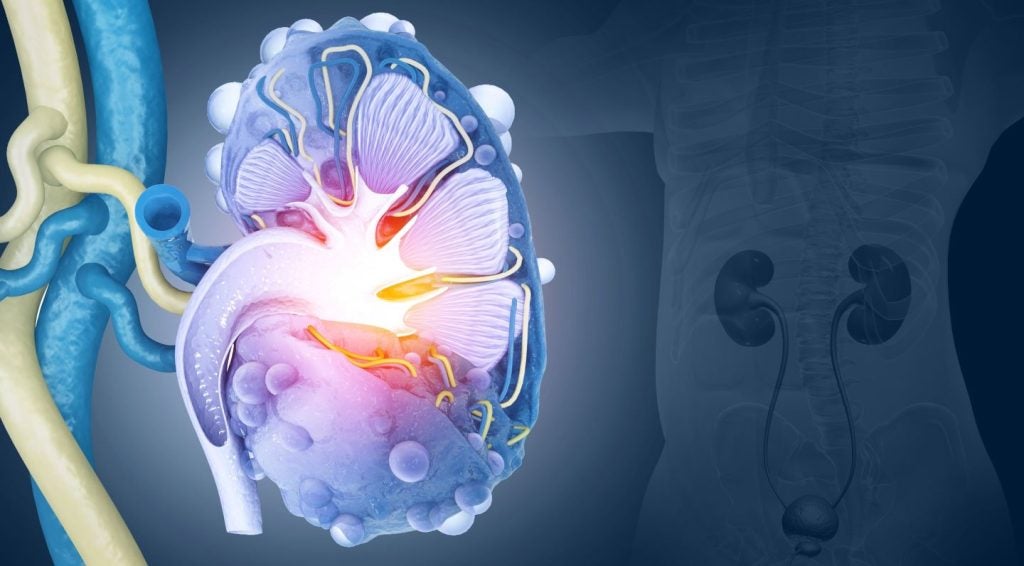Boehringer Ingelheim has reported promising 14-week findings from the Phase II clinical trial of BI 690517 plus standard-of-care including empagliflozin in chronic kidney disease (CKD) patients.
The double-blind, placebo-controlled trial evaluated the safety and efficacy of varying oral doses of BI 690517 as monotherapy or on top of SGLT2 inhibitor empagliflozin.
It enrolled CKD patients who were receiving stable background therapy with an angiotensin receptor blocker (ARB) or angiotensin-converting enzyme (ACE) inhibitor, irrespective of their type 2 diabetes status.
According to the findings, the combination therapy offered up to a 39.5% decline in albuminuria, a kidney damage marker, compared to placebo.
Up to 70% of subjects in the BI 690517 plus empagliflozin arm attained a clinically meaningful decline in urine albumin creatinine ratio (UACR), a secondary endpoint.
These reductions could translate into a decline in clinical kidney disease event risk by a minimum of 30%, the company noted.
In the trial, BI 690517 was found to be well tolerated with no new safety signals reported.
Developed by Boehringer, BI 690517 is a selective aldosterone synthase inhibitor (ASi).
Boehringer Ingelheim Human Pharma head Carinne Brouillon said: “These encouraging Phase II data not only demonstrate our commitment to developing innovative and transformational treatments for people living with cardio-renal-metabolic conditions but also have the potential to decrease the global burden of these interconnected diseases.
“With over one billion people worldwide affected by these conditions, the potential to help reduce the pressure on healthcare systems and patients is immense.”
The company anticipates commencing subject recruitment in the global Phase III EASi-KIDNEY trial of BI 690517 plus empagliflozin in established CKD patients.
In October this year, Boehringer and CDR-Life announced plans to launch a Phase I clinical trial of BI 771716 in preserving vision in geographic atrophy patients.









